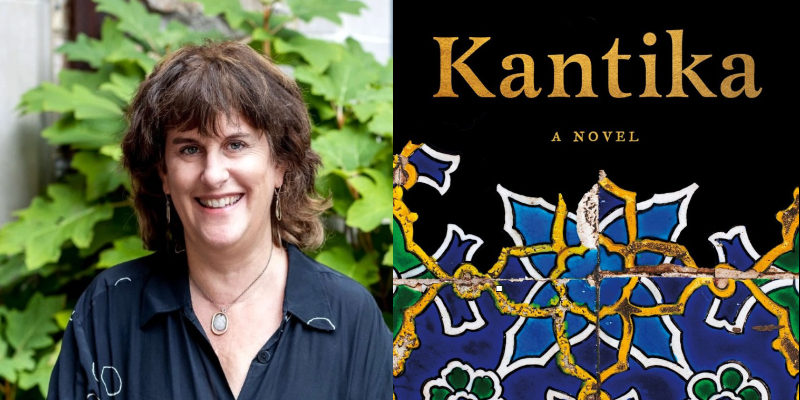
Elizabeth Graver on Making a Novel Out of Life
In Conversation with Mitzi Rapkin on the First Draft Podcast
First Draft: A Dialogue of Writing is a weekly show featuring in-depth interviews with fiction, nonfiction, essay writers, and poets, highlighting the voices of writers as they discuss their work, their craft, and the literary arts. Hosted by Mitzi Rapkin, First Draft celebrates creative writing and the individuals who are dedicated to bringing their carefully chosen words to print as well as the impact writers have on the world we live in.
In this episode, Mitzi talks to Elizabeth Graver about her new novel, Kantika.
Subscribe and download the episode, wherever you get your podcasts!
From the episode:
Mitzi Rapkin: Because this is a story based on your grandmother than you turned into fiction, I’m curious if writing this based on both imagination and research if it left with you with more questions or fewer?
Elizabeth Graver: In some ways, with more, and I’m very conscious that it’s a novel. I mean, I’m very conscious in fact that I don’t want my family to think that it’s the truth, you know, and it’s been interesting, because my cousin has been reading it, and sending me all these lovely texts. There was one interesting moment where she said, Oh, Grandma got me dolls like that from Cuba, too.
And I was like, Wait, but I made that up, you know, so maybe something like that happened, I guess, or I just happened upon something, or maybe I had a residual unconscious memory. I am conscious of, especially with people with a familial connection to the book, kind of insisting on reminding them that it’s fiction because it is. Any character, in some ways is going to be more about my inner life than the person’s, right, because I only really have access to my own.
So, in that way, I think I feel slightly nervous that it will sort of supplant the truth, which is, of course more complicated, right? I mean, you can’t write fiction that encompasses the complexity of any human being. It doesn’t submit to that people are too complicated. I don’t know what my grandmother would have thought she really liked attention. And she did see me as a storyteller and as an artist, and from when I was very, very tiny, we would draw together.
I think she saw me as in a line with people in her family who were creative in that way. And I hope she would appreciate that I’ve devoted all of this loving attention to this, but of course, I also at times call her out for being narcissistic or difficult. I’m not trying to write a kind of tribute. It’s a novel. I’m trying to write about people struggling and working things out and they’re flawed, as is everybody so in that way, you know, I’m not sure how it would sit, if that makes sense. I probably wouldn’t have written it when she was alive. I wouldn’t have dared.
***
Elizabeth Graver’s fourth novel, The End of the Point, was long-listed for the 2013 National Book Award and selected as a New York Times Notable Book of the Year. Her other novels are Awake, The Honey Thief, and Unravelling. Her story collection, Have You Seen Me?, won the 1991 Drue Heinz Literature Prize. Her work has been anthologized in Best American Short Stories, Best American Essays, and Prize Stories, the O. Henry Awards. She teaches at Boston College.
First Draft: A Dialogue on Writing
First Draft: A Dialogue on Writing is a literary podcast produced and hosted by Mitzi Rapkin. Each episode features an in-depth interview with a fiction, non-fiction, essay, or poetry writer. The show is equal parts investigation into the craft of writing and conversation about the topics of an author’s work.



















